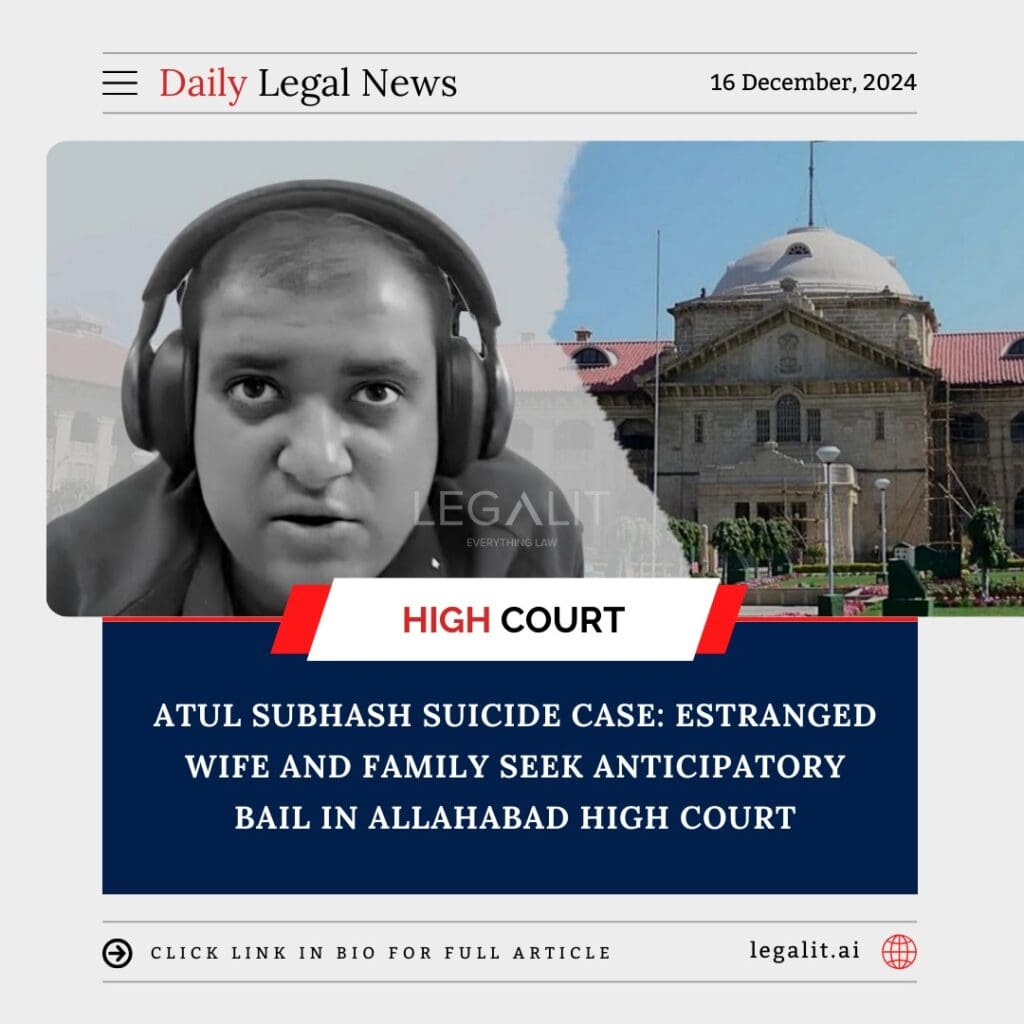
The estranged wife and family members of Atul Subhash, whose suicide has garnered widespread attention, have approached the Allahabad High Court seeking anticipatory bail. Subhash, a businessman, reportedly left a suicide note accusing his wife and in-laws of harassment, leading to the registration of a criminal case against them. The High Court has admitted the plea and is set to hear the matter in the coming days.
Background:
Atul Subhash’s death came under scrutiny after a suicide note allegedly pointed to his wife and her family as the reason for his extreme step. According to the note, Subhash faced prolonged mental and emotional distress due to disputes with his wife and alleged harassment from her family.
Following the suicide, a First Information Report (FIR) was filed by Subhash’s family under sections of the Indian Penal Code related to abetment of suicide. The estranged wife and her family, now named as accused, have denied the allegations and claimed they are being unfairly targeted.
The plea for anticipatory bail comes in the context of increasing legal action against the accused, who argue that they fear wrongful arrest and prolonged detention amid ongoing investigations.
Court’s Rationale:
The Allahabad High Court will examine whether a prima facie case of abetment of suicide exists against the accused. The court will also consider whether the allegations warrant custodial interrogation or if the accused can cooperate with the investigation while out on bail.
Under Indian law, anticipatory bail can be granted to protect individuals from arrest if the court finds that their arrest is not necessary for the investigation. In sensitive cases like this, courts often weigh the gravity of the allegations against the rights of the accused.
The defense has argued that the allegations in the FIR are baseless and an attempt to malign their reputation. They have further submitted that they were not in direct contact with Subhash at the time of his death, which raises questions about their involvement.
Existing Measures:
Abetment of suicide under Section 306 of the Indian Penal Code is a serious charge, requiring evidence of direct or indirect acts by the accused that drove the deceased to take their life. Indian courts have previously emphasized that mere disputes or disagreements in family matters do not automatically amount to abetment unless there is clear evidence of instigation or harassment leading to suicide.
Courts generally encourage mediation and conciliation in marital disputes, but they also take a firm stance on ensuring justice in cases where harassment or cruelty is alleged.
Conclusion:
The Allahabad High Court’s decision in this case will be closely watched, as it has implications for how courts address allegations of harassment leading to suicides in domestic settings. The outcome could influence future legal interpretations of abetment of suicide and anticipatory bail in sensitive family disputes. As the matter unfolds, both the complainants and the accused await clarity on their legal positions, underscoring the complex interplay between personal disputes and criminal law.